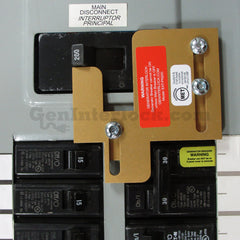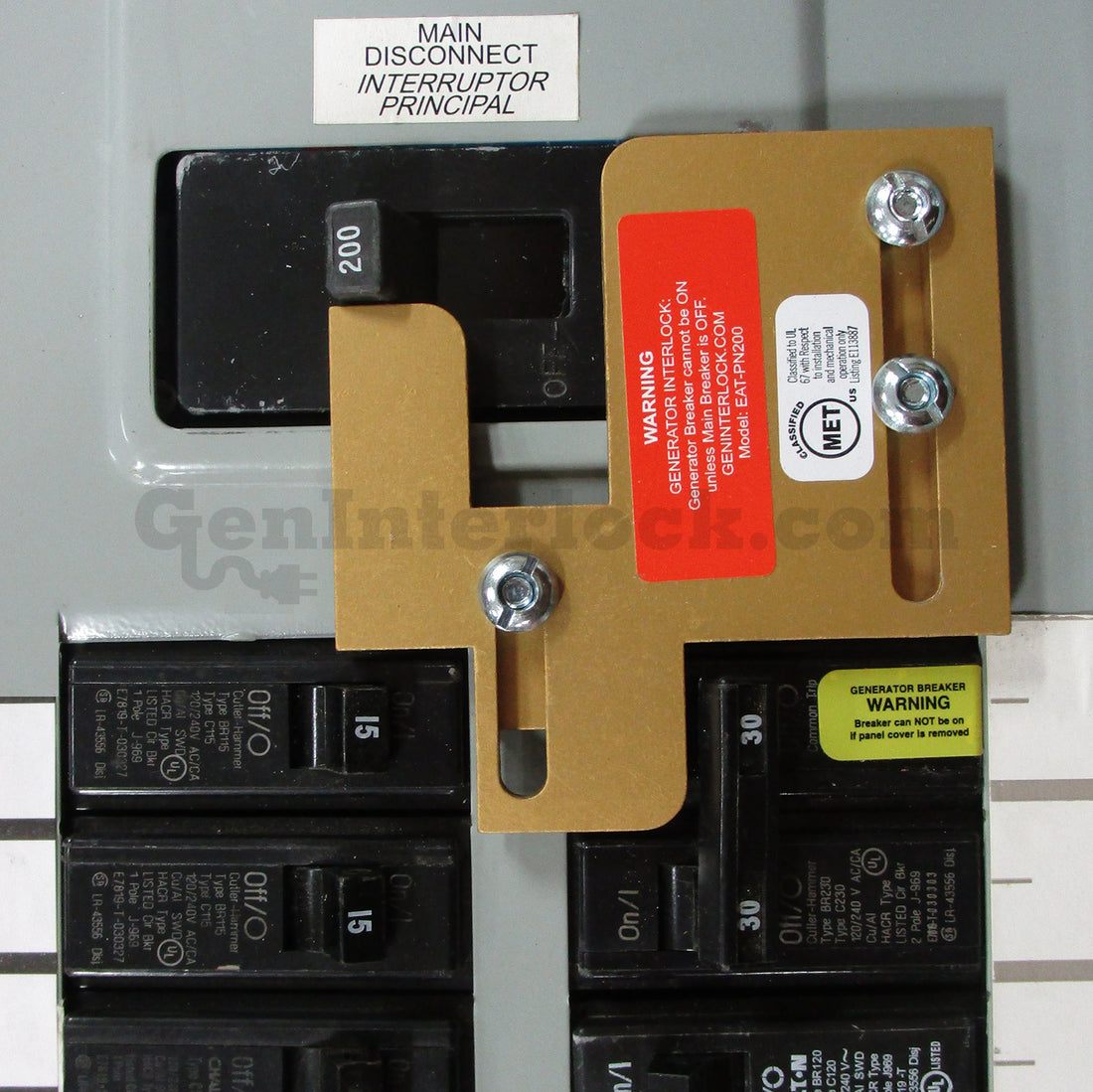When the power fails, you want to get your home back up and running. There are two main ways to safely connect a generator to your home: a portable generator with an interlock system or a whole home generator with an automatic transfer switch. Let's break down the pros and cons so you can make the best choice.
Portable Generator with Interlock System

- Cost-effective: Interlock kits are budget-friendly compared to whole-home generators.
- Flexibility: Power selected circuits based on your immediate needs.
- Portability: Take your generator with you if needed (e.g., camping, job sites)
- Requires Manual Operation: You must switch breakers and connect the generator in an outage situation.
- No City Permit Required: Interlocks can be installed without the need for a city permit.
- Fast Power Solution When You Need It: A Few hours to install vs. days for a whole home generator.
Whole Home Generator with Transfer Switch
- Seamless Power: Automatic transition when the power cuts out.
- Convenience: No manual switching required.
- Powers Your Entire Home: Run more appliances and systems simultaneously.
- Higher Cost: More expensive to buy, install and maintain.
- Not Portable: The generator is permanently installed at your home.
- Permitting Headaches: City permitting can be a real headache. The requirements that cities are mandating now can be a long and tedious process. It is not uncommon to wait weeks for a city to approve a permit for a whole home generator.
- HOA Approvals: HOA's seem to be cracking down. You must get HOA approval to have a whole home generator in most cases.
- Fuel Choices: What fuel will be used; natural gas or propane? Will your current gas meter be large enough to support it?
Factors to Consider:
- Budget: How much can you allocate for backup power?
- Power Needs: Do you need to power only essentials, or your whole house?
- Comfort Level: Are you okay with manual switching during outages?
- Frequency of Outages: Does your area experience frequent or extended power losses?
- Average Power Outage Time in Texas: It's important to consider the frequency and duration of power outages in your area. While national averages show U.S. electricity customers experienced around seven hours of outages in 2021, Texas specifically saw a higher average. In 2021, Texas residents experienced an average of 19.6 hours of power outages. This is not the average of each outage but the average of total hours of outage for the year, highlighting the potential benefit of back-up power solutions.
- Maintenance Costs: The average cost of basic maintenance for a whole home power generator can range from $171 to $394 per service, with an overall yearly cost of $200 to $600. However, it's important to understand that this is just a general range, and the actual cost can be influenced by several factors.
- Fuel consumption: The specific fuel consumption rate (in gallons per hour) of your 12 kW generator. This information can be found in the user manual or on the manufacturer's website. Without knowing the exact consumption rate, we can use an estimated average of 2 gallons per hour for a 12 kW generator under moderate to full load.
Prolectric LLC: Your Generator Experts!
We can help you decide! Our expert electricians will:
- Assess your electrical needs and recommend the best generator solution for your home.
- Install an interlock kit or a transfer switch safely and to code.
Get peace of mind with reliable back-up power! Contact Prolectric LLC at 281-337-5060 for a free consultation today!

